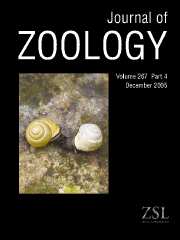Article contents
Habitats of the song thrush Turdus philomelos in a largely arable landscape
Published online by Cambridge University Press: 05 April 2001
Abstract
During three breeding seasons, 1994-96, the habitats of song thrushes were studied in north-east Essex, U.K., in 10 tetrads (total 40 km2) of mainly farmland habitat and 35 woods of differing sizes (range 0.1-57.0 ha). Within tetrads, only 6 (3.5%) territories were found in farmland. Gardens held 123 (71.5%) territories, though this habitat made up only 2% of the total area, while 39 (22.7%) were in woodlands (1% of total area). Population densities were much lower in the tetrads than in earlier studies; this may be an indication of the severe population decline that the species has recently undergone. Densities in gardens differed less from those of previous studies.
In the woodland study, the number of woods holding song thrush territories declined over the three years, while the proportion of total territories in the six largest woods increased. Densities in the woods were lower than those reported in earlier studies but the disparity was not as great as in farmland. Extinctions in the smaller woods was 20-30% per annum, a rate similar to that for gardens: population extinctions did not occur in the larger woods.
Some 40% of non-garden territories in the surveys of both tetrads and woodland plots were within 100 m of a garden. Gardens may be currently acting as a refuge for song thrushes and an understanding of the ecology of the species in different types of gardens may be important in current conservation efforts for the species.
- Type
- Research Article
- Information
- Copyright
- © 1998 The Zoological Society of London
- 12
- Cited by




